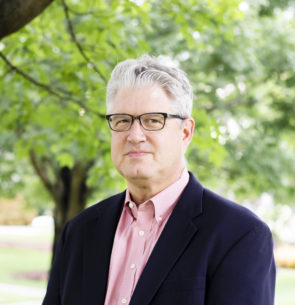
Allen Smart
Partner, PhilanthropywoRx
Allen Smart is a national spokesperson and advocate for improving rural philanthropic practice under his group –PhilanthropywoRx. He is also currently the Project Director for a national rural philanthropic project based at Campbell University in Buies Creek, North Carolina. He regularly consults with regional and national foundations on rural and philanthropic strategy.
Allen is the former Interim President, vice president of programs and director of the Health Care Division at the Kate B. Reynolds Charitable Trust. Prior to coming to the Trust in 2006, Allen was the vice president of programs at The Rapides Foundation, a healthcare conversion funder, in Alexandria, Louisiana. He has also served as Director of Community Development for a midwestern Catholic Hospital System and as Grants Administrator for the City of Santa Monica, California.
Allen received his Master of Public Health from the University of Illinois at Chicago, his Master of Arts from the University of Michigan and his Bachelors in Arts in Philosophy from Macalester College.
As part of his personal and professional interest in philanthropy, Allen regularly writes for sites such as The Daily Yonder and Exponent Philanthropy as well as presenting to national and regional groups like Grantmakers in Health, Southeastern Council of Foundations, National Rural Assembly and the federal Office of Rural Health Policy. He is a member of the National Advisory Committee for the Rural Resource Hub at The University of North Dakota; the Culture of Health Prize Selection Committee for Robert Wood Johnson Foundation and the Board of Directors for Healthy Communities by Design
Related Sessions
Bridging the Rural/Urban Divide
Kathleen Annette
Diana Anderson
William Buster
Allen Smart
While the rural population in the United States comprises 19 percent of the total population, the level of giving focused on rural communities has been less than 7 percent of all grantmaking from foundations, according to Foundation Center. The current political moment has underscored the alienation felt by many in rural communities, as well as the tendency of “coastal elites” to under-appreciate the distinct challenges rural communities face. This session will explore how to define, scope, and address the unique challenges and opportunities in serving rural communities.